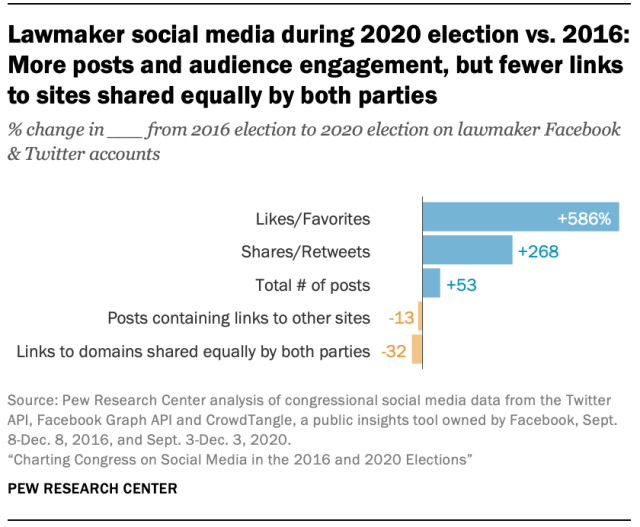
The 2020 election occurred in a cultural and political climate that was vastly different than that of the 2016 race. The unique nature of each election cycle was also visible in the ways members of Congress used Facebook and Twitter to engage with the public in the months before and after Election Day. Most obviously, the 2020 election was much more online than the preceding presidential cycle. Lawmakers shared tens of thousands more posts – and received orders of magnitude more engagement from other social media users – than was the case in 2016.
Beyond the increases in the sheer volume of posts and engagement, the content of lawmakers’ social media feeds can shed light on the contours of each election and the broader environment of modern political communication. It highlights key differences between the two parties, like how Democratic members disproportionately mentioned terms related to voting rights and access to the polls across both study periods. It also highlights broader trends in social media as a tool for information spread, such as the fact that a rising share of links posted by lawmakers go to sources that are shared largely or exclusively by members of one party.
Read more here